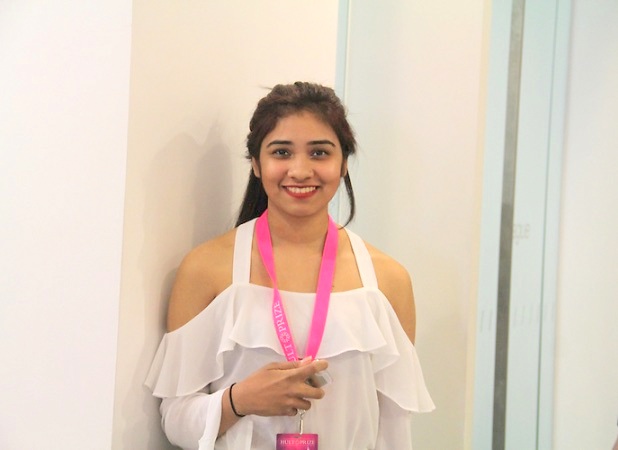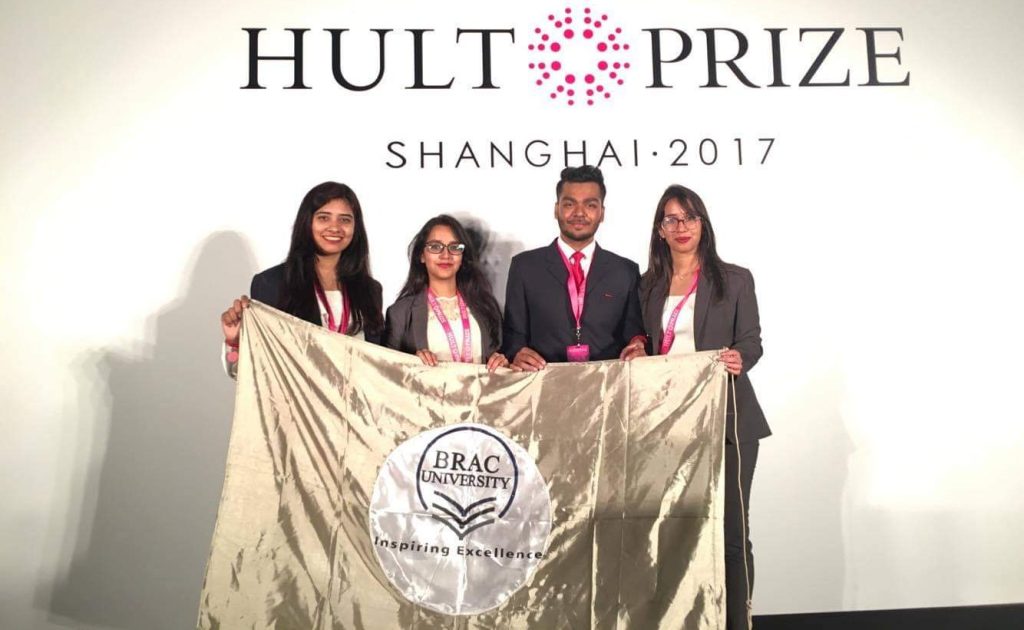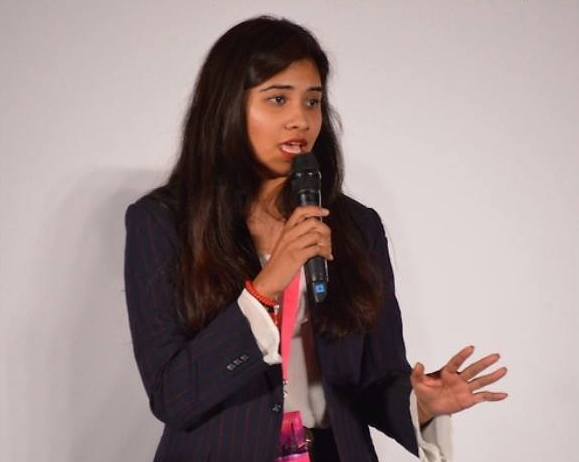Naziba Naila Wafa
Officer – KCMA
Swisscontact Bangladesh
Ms. Naziba Naila Wafa is a dedicated professional serving as an Officer at Swisscontact Bangladesh. With a passion for development and a commitment to positive change, she plays a crucial role in advancing the organization’s mission in Bangladesh. Ms. Naziba brings a wealth of knowledge and expertise to her role, making a meaningful impact on various projects aimed at enhancing livelihoods and promoting sustainable practices in the region. Her unwavering dedication and skills make her an invaluable asset to Swisscontact’s endeavors in Bangladesh.
Let’s learn about her journey.
The InCAP: Ms. Naziba Naila Wafa, please share your professional and academic peregrination for our readers!
Ms. Naziba Naila Wafa: I completed my undergraduate degree in Business and pursued a master’s in development studies, both at BRAC University. During my university years, I began working with my organization, Resurgence, and later as a radio jockey at Radio Dhol. After my undergrad, I interned at Reckitt Benckiser and transitioned through roles at Lightcastle Partners, MGH, Green Delta Insurance, and my current position at Swisscontact.
Can you please describe your role and responsibilities as an Officer – KCMA at Swisscontact Bangladesh?
I am responsible for crafting diverse content such as articles, videos, and social media updates to effectively convey our organization’s initiatives. I manage our relationships with the media, oversee the organization’s website, and ensure our events receive the attention they deserve. Handling crisis communication, internal updates, and providing support for advocacy campaigns are all part of my role. Maintaining a consistent organizational brand, measuring the impact of our communications, and collaborating with partners are also important aspects of my responsibilities. Through my work, I ensure that our messaging resonates well and engages stakeholders, driving the advancement of our organization’s goals.
To go into details, another aspect is to stay updated on the progress and milestones of each intervention which requires me to work closely with the Monitoring and Reporting (MRM) and Implementation team. I also work to publish notable news and incidents across multiple media in order to leave online footprints and raise awareness regarding the significance of Local Economic Development. Additionally, given the importance of leaving a mark and not to mention also having a tangible mode of project information, I work towards developing informative materials like toolkits, brochures, posters, success stories, videos, and more. Furthermore, I work with the MRM team and contribute if necessary, when it comes to essential donor reports.
I also help with organizing events and taking care of things after they’re done, like making sure people know about the event through different media. Engaging in Economic appraisals, validation workshops, and the exploration of new municipalities further defines my responsibilities. This entails traveling to rural areas in Bangladesh, conducting interviews, attentively listening to the community’s narratives and concerns, and collaboratively analyzing the gathered data with the team. This collective effort culminates in formulating impactful and enduring solutions.

What motivated you to join Swisscontact and work in the field of development in Bangladesh?
My experience with Resurgence and Reckitt Benckiser’s CSR department ignited my curiosity for the development sector. To grasp a sector’s essence, understanding its roots is vital. This drove me to pursue a master’s in development studies, fueling my passion.
At Green Delta Insurance, working on projects with NGOs and INGOs further cemented my determination to transition to development. Partnering with Swisscontact offered insights into their methods and culture, enhancing my understanding. PRABRIDDHI project’s focus on decentralization and local economic development intrigued me. Despite initial concerns about working with government bodies, support from colleagues eased the process.
Working in the development sector offers a chance to create meaningful change by addressing global issues like poverty and inequality. This path provides personal fulfillment, skill diversification, and exposure to multidisciplinary approaches. The field fosters continuous learning, collaboration, and cultural understanding, allowing professionals to influence policies and achieve lasting impact through innovation. While challenges exist, a strong sense of community and purpose drives those committed to making positive, sustainable contributions to society. Furthermore, the sector enthralls me for its tangible impact. Amid the rapidly changing world and persistent issues, contributing beyond monetary gains feels immensely rewarding. This motivates me to leave a lasting impression and effect change—the prime reason for my career choice in the development sector.
Could you share a recent project or initiative you’ve been involved in at Swisscontact that you are particularly proud of, and what impact it had?
Having grown up in the city, I had little exposure to rural life. During my time at a previous organization, I often avoided field trips due to concerns about comfort and convenience. However, since joining Swisscontact, my perspective has taken a significant turn. I’ve had the privilege of visiting various places, including Bhairab, Shibganj, Jashore, and Kushtia, and each experience has surpassed the last. Despite my initial reservations, engaging with rural communities has been a truly transformative journey.
Among these visits, my time in Dinajpur stands out prominently. I spent a week there to conduct a Rapid Economic Appraisal (REA) as part of our Local Economic Development initiatives. This involved extensive interviews with both public and private sector individuals, providing me with a comprehensive view of the area. It marked not only my first participation in the REA process but also my first deep interaction with people on this level. Their warm reception and endearing nicknames like “Bon” (sister) and “Mey” (daughter) made me feel at home despite the lack of modern conveniences.
The impact of this experience has been truly profound. Firstly, the analysis resulting from the trip led to the expansion of our project into the city, showcasing the tangible outcomes of our efforts. Secondly, on a personal level, this journey has been enlightening. While I was well-acquainted with our project’s objectives, the field trip underscored the pressing need for decentralization and local economic development. It kindled a stronger sense of appreciation and gratitude for the opportunity I had. My conversations with women employees in municipalities shed light on their remarkable ability to balance their professional and personal lives, revealing the pivotal role of rural women in local politics.
In essence, what might seem ordinary to some was an absolute revelation for me. This experience has redefined my outlook on my work, our project’s mission, and the entirety of rural Bangladesh. The journey promises a future of impactful, sustainable, and effective solutions. It has taught me to step beyond my comfort zone and recognize the immense potential for positive change that resides in every corner of our nation.
In your opinion, how do you stay updated with the latest trends and developments in your field to ensure you’re effective in your role?
To stay well-informed about the latest trends and advancements in the development sector, I use a combination of approaches. Firstly, I regularly follow reputable news sources, online platforms, and social media channels that focus on development topics. This helps me keep track of current events, emerging issues, and innovative solutions.
Secondly, I attend workshops, conferences, and webinars related to development and communication. These events provide opportunities to learn from experts, share experiences with peers, and gain insights into best practices.

Thirdly, I engage with professional networks and online communities where professionals in the development and communication fields discuss new ideas and share their experiences. This allows me to tap into a wealth of collective knowledge.
Additionally, I’m proactive in seeking out research reports, whitepapers, and case studies published by reputable organizations and think tanks. These resources offer in-depth analysis and data-driven insights into various development challenges and solutions.
Collaboration within my organization is crucial too. Regular interactions with colleagues from different teams help me understand their work and the evolving needs of the projects, which in turn informs my communication strategies.
Overall, a combination of continuous learning, active engagement in professional networks, and a collaborative approach within the organization ensures I’m well-equipped to effectively fulfill my role as a Communications Officer in the dynamic development sector.
What was your first job in life? How much was your first salary? What did you do with the first paycheck?
My first job was in an event management startup that went bankrupt within 4 months. I started working there at the beginning of last year. Not going to lie, it was fun while it lasted but definitely gave me tons of trust issues. I earned BDT 10,000/ month which was a substantial amount given the time and age.
Ms. Naziba Naila Wafa, please say something to the readers!
Let’s not take things too seriously. Every day, a new podcast comes along, trying to dictate what we should be doing, what we should have already done, the goals we should be chasing, the people we should be dating, or even the personality we should be molding. It’s all quite pointless and absurd. Social media, of course, plays an immense role in our daily routines, and it’s incredibly easy to not only get swayed by it but also end up comparing ourselves to its distorted reality. But let’s be honest, it’s nothing more than a mask. The sooner we embrace this truth, the simpler it becomes to confront life’s challenges.
The best approach is to take a deep look into our own lives, hold onto our core values, and act according to our true morals. Let’s just ride the waves of life as they come, staying true to ourselves and our roots.

Quick Chat With Naziba Naila Wafa
The most outstanding achievement of your life as of now:
Winning the “Social Impact” award at the global finals of “Global Student Entrepreneurship Awards”.
Your Icon:
I don’t really have an icon per say but my mum is my role model and the character from The Office (US), Michael Scott is my spirit animal.
Name the most influential books you have read:
A thousand Splendid Suns, A man in no women, and The Henna Artist (BIG ON FICTION).
Your greatest fear:
Not living up to my potential.
Best piece of advice you’ve received:
Nothing worth having comes easy.
You in only three words:
Humorous, Resilient, Always Hungry!
Skill Set:

- Hard Skills: Presentation skills, pitch deck preparation, negotiation skills, self-branding
- Soft Skills: Adaptiveness, spontaneous, EMPATHETIC, cooperative
Prayer For The Human Civilization:
May we be kinder to each other, with the passing days.
The InCAP: Thank you, Ms. Naziba! It’s a glittering conversation with you!
Ms. Naziba Naila Wafa: My pleasure! Wish you all the best! Thank you
To read more about Promising Professional Person’s stories, Please Click Here!







